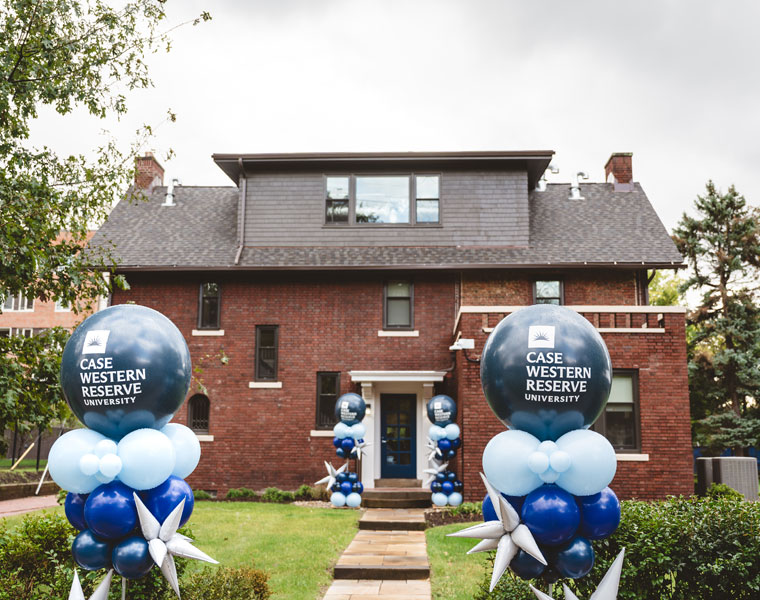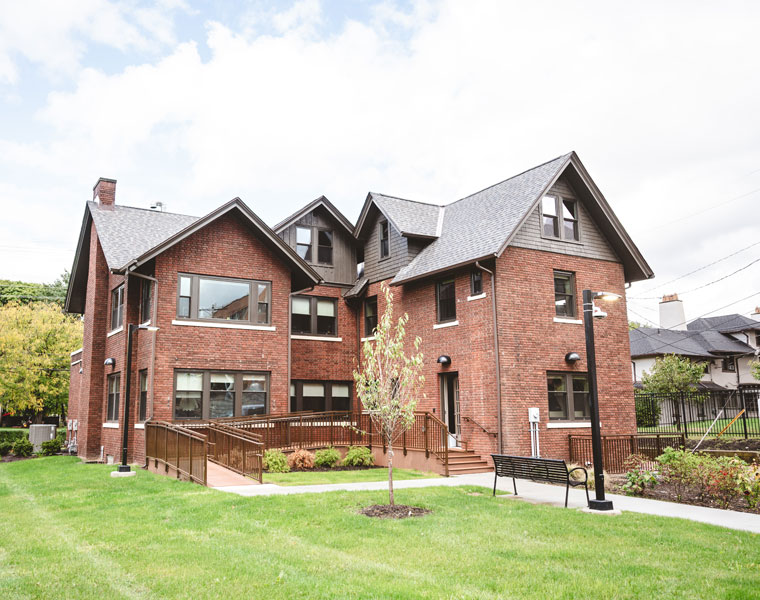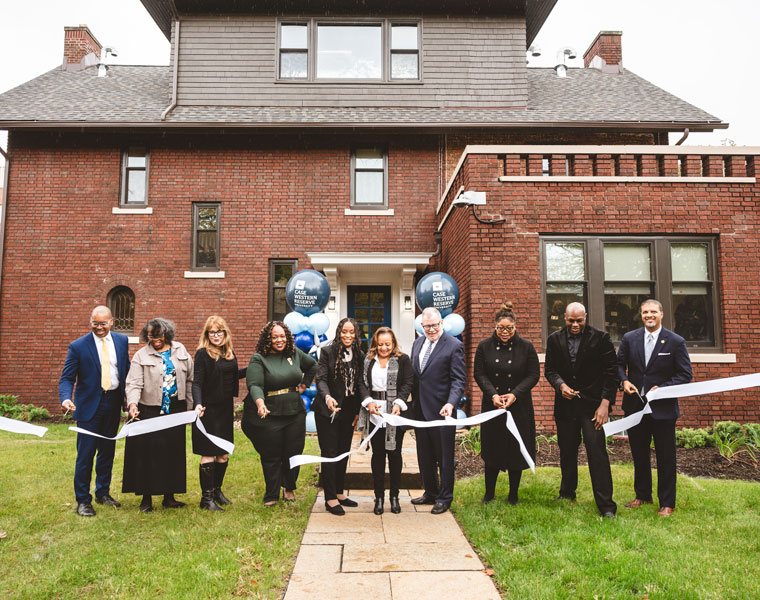New center dedicated to community activities, education and programming
Built in 1924, a 4,500-square-foot home in Cleveland’s Magnolia-Wade Park Historic District sat vacant for nearly a decade.
But with a formal ribbon-cutting yesterday, the property—restored with a $2.3 million investment by Case Western Reserve University—was re-introduced to the neighborhood as the institution’s new Wade Park Community Engagement Center.
Funding for the restoration included $200,000 from the American Rescue Plan Act, directed by Cuyahoga County Council Representative Yvonne Conwell, and $250,000 from The George Gund Foundation.
The repurposed home at 11310 Wade Park Ave., where staff members of Case Western Reserve’s Office of Local Government and Community Relations now have their offices, was renovated to offer activities and programs for neighborhood residents and community groups.
“One of our three institutional priorities is to enhance our engagement with the surrounding community,” said Case Western Reserve President Eric W. Kaler. “This center enables us to work each day alongside local residents, fostering more robust partnerships between us and promoting more effective collaborations that will strengthen our shared neighborhood.”
Julian Rogers, CWRU’s associate vice president of Local Government and Community Relations, said he looks forward to the impact the shared space will have on both the surrounding neighborhood and the campus community.
“The center is a place where CWRU faculty, staff and students can come together with residents and community members,” he said. “They can learn from each other while creating opportunities to enhance education, build relationships and improve outcomes.”
While specific programming will be determined in collaboration with members of the community and consulting with CWRU’s Neighborhood Advisory Council (NAC), programs and activities will include:
- NAC offices and monthly meeting location: Three years ago, the NAC—a 20-member body composed of community members, students and representatives from CWRU and local community organizations—was established to advise university leadership on relevant issues, programs and projects that significantly impact people in East Cleveland and Cleveland neighborhoods near campus.
- Telehealth/interview room: For those without reliable internet access at home and proper equipment, conducting remote job interviews or telehealth doctor’s appointments is an issue. Space will be provided for community residents to conduct remote job interviews or telehealth appointments.
- Health and wellness screenings and workshops: Promoting health and wellness within the community will be an important component of the center. Working with CWRU’s schools of medicine, nursing and dental and other community partners, health and wellness clinics, workshops and activities will be offered.
- Youth Programs: Youth-centered activities from CWRU’s Office of Pre-Collegiate Programs will connect university students and faculty to serve as tutors and mentors to elementary, middle, and high-school students in neighboring schools.
- Law clinics: The center will serve as a location for the School of Law’s clinics, such as the Second Chance Re-entry Clinic, which addresses legal challenges of formerly incarcerated individuals, and the Wills Clinic, which provides free wills to local residents.
- Local small business advising and workshops: In partnership with local organizations, the university hopes to provide legal and technical assistance to local small businesses looking to expand or need assistance with contracts or develop employee manuals.
- Community gathering space: Local community organizations, neighborhood groups and block clubs will be able to reserve conference rooms for their meetings. The property’s outdoor space may also be used for community gatherings, celebrations and recreation.
For more information, contact Bill Lubinger at william.lubinger@case.edu.










